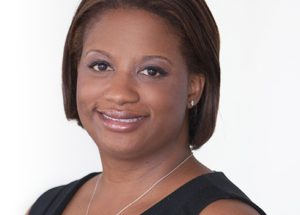 Contributed by Jane Sanders, President, GenderSmart® Solutions
Contributed by Jane Sanders, President, GenderSmart® Solutions
Yes, things in the corporate world are getting better for women. And yes, we still have a ways to go. Women in leadership and executive positions stare down a double-edged sword daily. If their style is primarily assertive, decisive, task vs. relationship oriented, etc., they are labeled as too tough and masculine…the ‘b’ word. So does this mean don’t act like a man? Or, if a woman’s style is predominantly collaborative, supportive, and friendly, she is perceived as nice but less competent. So does this mean don’t act like a woman if she wants to advance? But what’s left – how is she supposed to act?
Managing Gender Stereotypes
Women must walk a fine line in the corporate world, especially in longer-established industries such as financial services, insurance, automotive, and manufacturing. Using solely one gender communication style or the other can often backfire, much more so than it would for a man, as this inflexible behavior will illicit stereotyping and misperceptions of women’s competence and personality. Such behavior by men can cause judgment too, but less often and less severe, with milder consequences.
Eliminating these gender stereotypes is a valid but lofty goal and, for the foreseeable future, completely unattainable goal. So instead of focusing on eliminating stereotyping, the world would be better served by becoming aware of gender styles, accepting them merely as differences rather than right or wrong behaviors, and learning how to work with them more effectively. In a way this is a form of eliminating typecasting, but it approaches the issue by managing stereotypes, not expecting them to disappear.
 By Melissa J. Anderson (New York City)
By Melissa J. Anderson (New York City)
 Contributed by Jane Sanders, President, GenderSmart® Solutions
Contributed by Jane Sanders, President, GenderSmart® Solutions By Melissa J. Anderson (New York City)
By Melissa J. Anderson (New York City)

 Contributed by Terri Klass and Judith Lindenberger
Contributed by Terri Klass and Judith Lindenberger By Melissa J. Anderson (New York City)
By Melissa J. Anderson (New York City) By Stephanie Wilcox (Middlefield, CT)
By Stephanie Wilcox (Middlefield, CT) By Melissa J. Anderson (New York City)
By Melissa J. Anderson (New York City) Contributed by Myra Salzer, author of
Contributed by Myra Salzer, author of  By Tina Vasquez (Los Angeles)
By Tina Vasquez (Los Angeles)